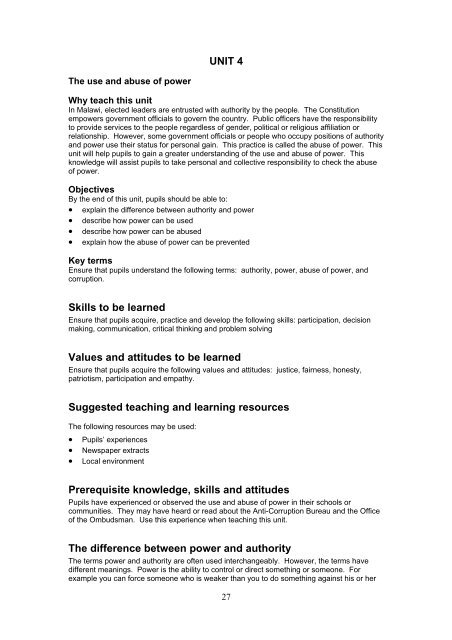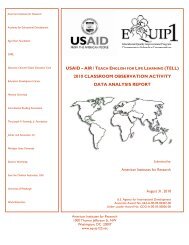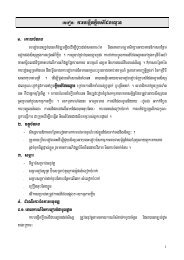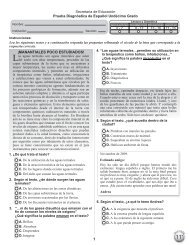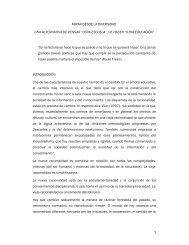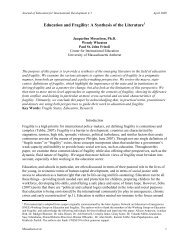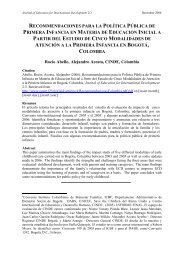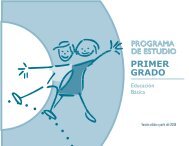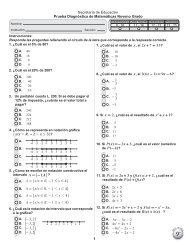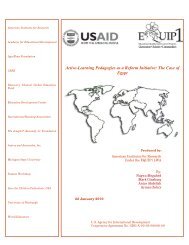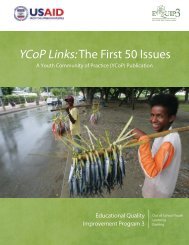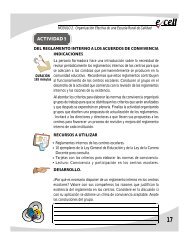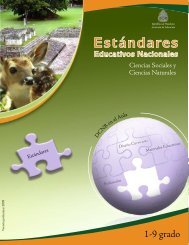Social Studies Supplementary Teacher's Guide for ... - EQUIP123.net
Social Studies Supplementary Teacher's Guide for ... - EQUIP123.net
Social Studies Supplementary Teacher's Guide for ... - EQUIP123.net
You also want an ePaper? Increase the reach of your titles
YUMPU automatically turns print PDFs into web optimized ePapers that Google loves.
UNIT 4The use and abuse of powerWhy teach this unitIn Malawi, elected leaders are entrusted with authority by the people. The Constitutionempowers government officials to govern the country. Public officers have the responsibilityto provide services to the people regardless of gender, political or religious affiliation orrelationship. However, some government officials or people who occupy positions of authorityand power use their status <strong>for</strong> personal gain. This practice is called the abuse of power. Thisunit will help pupils to gain a greater understanding of the use and abuse of power. Thisknowledge will assist pupils to take personal and collective responsibility to check the abuseof power.ObjectivesBy the end of this unit, pupils should be able to:• explain the difference between authority and power• describe how power can be used• describe how power can be abused• explain how the abuse of power can be preventedKey termsEnsure that pupils understand the following terms: authority, power, abuse of power, andcorruption.Skills to be learnedEnsure that pupils acquire, practice and develop the following skills: participation, decisionmaking, communication, critical thinking and problem solvingValues and attitudes to be learnedEnsure that pupils acquire the following values and attitudes: justice, fairness, honesty,patriotism, participation and empathy.Suggested teaching and learning resourcesThe following resources may be used:• Pupils’ experiences• Newspaper extracts• Local environmentPrerequisite knowledge, skills and attitudesPupils have experienced or observed the use and abuse of power in their schools orcommunities. They may have heard or read about the Anti-Corruption Bureau and the Officeof the Ombudsman. Use this experience when teaching this unit.The difference between power and authorityThe terms power and authority are often used interchangeably. However, the terms havedifferent meanings. Power is the ability to control or direct something or someone. Forexample you can <strong>for</strong>ce someone who is weaker than you to do something against his or her27


